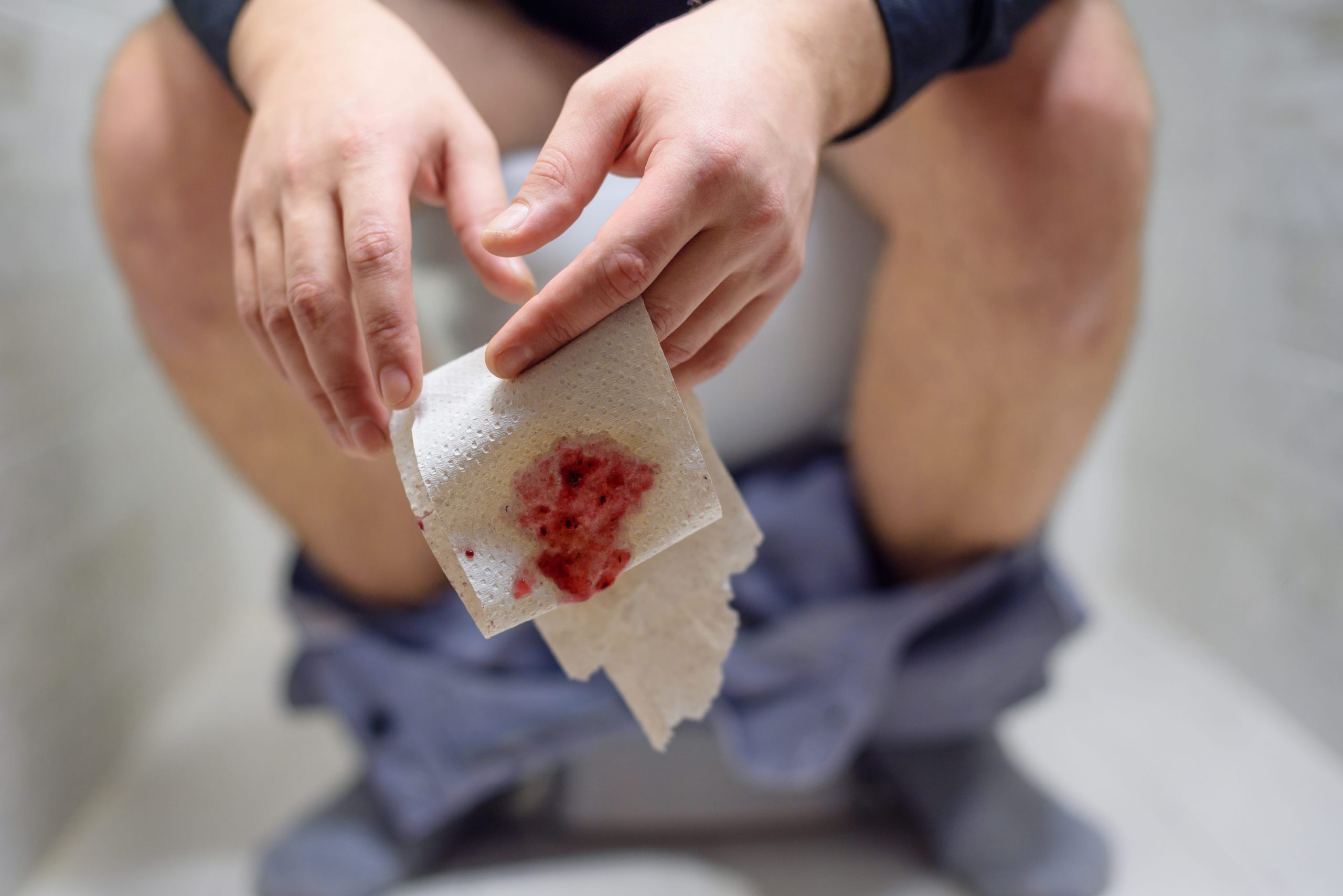Blood In Stool
What is Blood In Stool?
Rectal bleeding, or blood in stools, refers to any blood that passes out of the anus. Some cases would just have blood stains on toilet paper when wiping. Some bleeding occurs without being accompanied by stool. In other times the blood may be mixed with stool. Most of the time bleeding is not life threatening. Nevertheless, it may be so severe that it can cause low blood pressure and giddiness.
Sometimes the amount of blood in stool is too little such that it cannot be seen with a naked eye. A stool test may reveal the presence of blood in these cases.

The colour of the blood may be indicative of where the bleeding occurs. Fresh blood tends to come from the area nearer to the anus. Blood from the deeper part of the colon would appear darker. Bleeding that arises from the stomach would cause stools to appear completely black. It appears tarry and has a distinctive fishy smell.
Blood in stool symptoms may occur painlessly or it may be accompanied by other symptoms such as anal pain or a change in bowel habit.
You should see a doctor if you have blood in your stool. The doctor will determine your risk of having a more serious condition other than piles after screening and conducting a rectal examination. If bleeding is not from simple piles, you will need a referral to see a gastroenterologist, a blood in stool specialist that helps to manage gut symptoms. You should never ignore the blood in your stool.
The gastroenterologist would likely carry out a colonoscopy to determine the exact cause of the bleeding.
If your stool has blood on stool testing, you will likely also need a colonoscopy.
The most common cause of blood in stool is haemorrhoids or piles. Common symptoms of piles include itch, pain and mucus discharge. If the bleeding is associated with severe pain in the anus, the most likely cause is anal fissure.
Polyp and cancer of the colon can also cause bleeding. Sometimes, blood in stool may be the only symptom of colon cancer. Other symptoms of colon cancer that occurs in the later stages are: abdominal pain, change in bowel habit and weight loss.
Blood in stool can also occur with inflammation of the colon due to infective causes or inflammatory bowel diseases.
Patients with risk factors for colon cancer should get a blood in stool specialist’s assessment to see if they need a colonoscopy.
The risk factors of colon cancer are:
- Age>45
- Family history of colon cancer and colon polyp
- Family or personal history of another form of cancer
- Diabetes
- Obesity
- Diet heavy in processed/preserved meat or red meat
Piles or haemorrhoids are diagnosed with direct visualization with proctoscopy or colonoscopy.
An anal fissure is diagnosed with a very typical symptom of severe anal pain and careful but gentle inspection of the anus.
Rectal ulcers, polyps, cancer of the colon, inflammatory bowel disease and most other rarer causes of rectal bleeding require examination with colonoscopy. Sometimes a biopsy is required to confirm the diagnosis.
Treatment of blood in stool depends on the causes.
Bleeding from piles is often self-limiting. It will often respond to simple medication available from family doctors. A Sitz bath can be helpful at times. Sometimes piles or haemorrhoid ligation can be done to treat it. The more severe cases may need surgery.
Bleeding from anal fissures would require medication to soothe the affected area. Stool softening can also help to provide some relief by reducing strain during bowel movements.
Treatment of blood in stool depends on the causes.
Bleeding from piles is often self-limiting. It will often respond to simple medication available from family doctors. A Sitz bath can be helpful at times. Sometimes piles or haemorrhoid ligation can be done to treat it. The more severe cases may need surgery.
Bleeding from anal fissures would require medication to soothe the affected area. Stool softening can also help to provide some relief by reducing strain during bowel movements.
Bleeding due to a more critical cause would need proper treatment of the underlying issue. Polyps will be removed during colonoscopy using a snare. This procedure is called a polypectomy.
Cancer of the colon would require surgery and in some cases, chemotherapy and radiotherapy.




